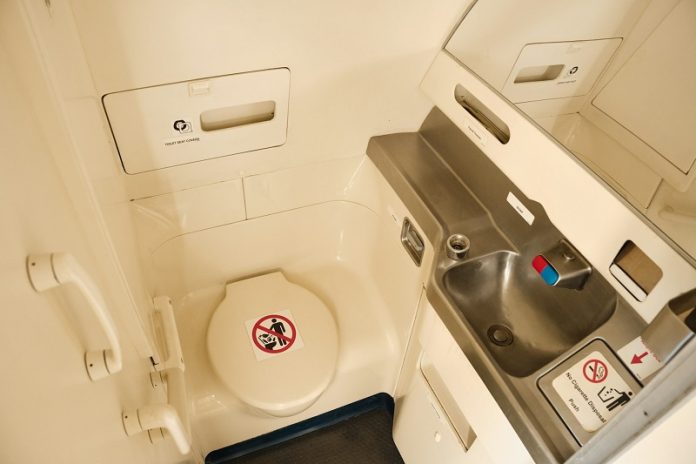
Antimicrobial resistance, often called AMR, is considered one of the world’s most dangerous health threats.
Superbugs—bacteria that no longer respond to antibiotics—are spreading across the globe silently and quickly.
By 2050, experts warn they could kill more people than cancer. Now, researchers in Australia believe they have found an unusual but powerful tool to monitor this looming crisis: wastewater from aircraft toilets.
A new international study, led by scientists at Australia’s national science agency CSIRO and published in Microbiology Spectrum, analyzed lavatory wastewater from 44 international flights arriving in Australia.
The flights came from nine countries across Asia, Europe, the Middle East, and Africa. Using advanced molecular techniques, the researchers looked for genetic traces of superbugs and the resistance genes that allow them to survive antibiotics.
The results were striking. The team detected nine high-priority pathogens and drug-resistant bacteria, including some that are usually acquired in hospitals and are resistant to multiple medicines.
Five of these pathogens appeared in every single flight sample. Even more alarming, the researchers found a gene that gives bacteria resistance to last-resort antibiotics on 17 flights. That gene was not found in Australia’s urban wastewater during the same period, suggesting it was likely brought in through international travel.
Dr. Warish Ahmed, the study’s senior author and a principal research scientist at CSIRO, said the results confirm that aircraft wastewater can act as a valuable surveillance tool. “Aircraft wastewater captures microbial signatures from passengers across different continents, offering a non-invasive, cost-effective way to monitor threats like AMR,” he explained.
The study also revealed major differences between flights from different regions. Professor Nicholas Ashbolt, a microbiologist at the University of South Australia, noted that flights from Asia, particularly India, had higher concentrations of antibiotic resistance genes compared with flights from Europe and the U.K. These differences may reflect variations in how antibiotics are used, sanitation systems, and public health policies around the world.
Of the 44 flights analyzed, 18 came from India, 14 from the United Kingdom, six from Germany, and others from countries including France, Türkiye, South Africa, Japan, and Indonesia. Lead author Dr. Yawen Liu, a visiting scientist from Xiamen University in China, said the disparities offer important insights into how resistance develops and spreads. “By monitoring aircraft wastewater, we can potentially detect and track antibiotic resistance genes before they become established in local environments,” Dr. Liu said.
To test whether disinfectants in aircraft toilets damaged genetic material, the team examined how long nucleic acids remained stable in wastewater. They found that even in the presence of strong cleaning agents, genetic material could still be reliably detected for up to 24 hours. This confirmed that aircraft wastewater can provide trustworthy information for surveillance.
International travel has already been identified as a major driver of infectious disease spread, from tuberculosis to influenza and most recently COVID-19. Wastewater monitoring could become another tool in the fight against pandemics, complementing strategies like passenger screening, quarantine, and travel restrictions.
The samples in this study were collected from repatriation flights during the COVID-19 pandemic, which may have influenced passenger demographics. But the researchers stress that the same approach could easily be adapted to routine international travel. With AMR projected to cause more than 39 million deaths worldwide by 2050, they argue that innovative solutions are urgently needed.
“This is a proof-of-concept with real-world potential,” said Dr. Ahmed. “We now have the tools to turn aircraft toilets into an early-warning disease system to better manage public health.”
This research builds on earlier work by CSIRO in partnership with Qantas and the University of Queensland, where scientists successfully detected traces of the SARS-CoV-2 virus in wastewater from long-haul flights.
That project demonstrated the value of using wastewater to track pathogens, and now, it may also help prevent the global spread of antibiotic resistance.



